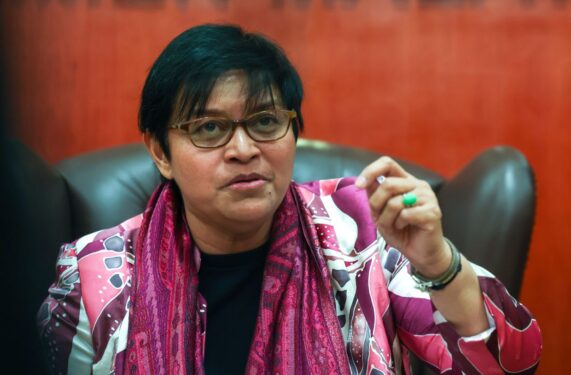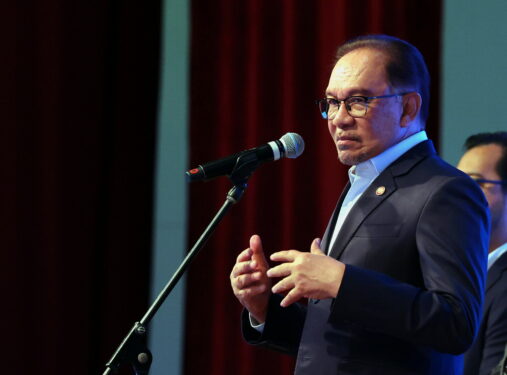By Lee Heng Guie
After picking up to 4.9% in 2Q19 (4.5% in 1Q), Malaysia’s economy relapsed to a slower rate of 4.4% yoy in the third quarter (July-September) as weakening domestic demand and exports contraction weighed on the growth.
In the first nine months of this year, the economy grew by 4.7%. With the continued drag from sluggish exports and slowing domestic demand, we estimate real GDP growth to be sustained at 4.5%-4.6% in 4Q, taking the full-year growth to 4.6% in 2019 (4.7% in 2018).
The consumer stayed on a spending streak, continuing to help hold up the economy, albeit at a slower pace. Household consumption grew slower at 7.0% in 3Q from 7.7% in 1H19 though it still matched the average growth of 7% a year in 2011-2018.
Consumers are spending less on big-ticket items such as motor vehicles, patronising less in restaurants and hotels, and purchasing less on recreational goods as well as transport and communication services.
Overall, labour market conditions remained supportive of household spending, albeit slower. Joblessness was at 3.3% in 3Q while private wages moderated to 3.8% in 3Q from 4.2% in 2Q, reflecting slower wage growth (4.1% in 3Q; 4.4% in 2Q) in the services sector and 3.2% in 3Q; 3.9% in 2Q in the manufacturing sector.
Cooling wage growth could hold down spending gains in the months ahead.
Consumer sentiments continued to remain downbeat with the Consumer Sentiments Index (CSI) slipping to 84 in 3Q2019, the lowest reading since 4Q 2017.
Among the reasons cited for dampening sentiments are less favourable finances and weak job outlook weighing on income expectations while low-income households, rural areas and the eastern region are most anxious about rising prices. Shopping plans are limited by flagging purchasing power.
Private investment down
Another big disappointment was a sluggish 0.3% growth in private investment in 3Q (1.8% in 2Q and 0.4% in 1Q), taking the cumulative growth to only 0.9% in the first nine months of this year.
This marks the second successive year of sharp moderation in private investment since 2017 (9.0%) and 4.3% in 2018.
Weighed down by weak sentiments, businesses have responded to external uncertainties, including the trade hostility development, persistent weakness in the property segment as well as domestic political uncertainty.
By type of assets, capital spending on machinery and equipment declined by 6.4% in Jan-Sept 2019 while imports of capital goods contracted sharply by 11.5% in the same period.
The danger is that the persistent pullback on capital spending would take much of the steam out of the economy going forward and undermine capital formation.
There are also worries that weak business investment and challenging economic conditions could constrain companies’ ability to continue hiring more workers and undermine consumer spending.
In the first half of 2019, approved total investment in the manufacturing, services and primary sectors grew by 7.6% to RM92.0 bil.
While approved foreign direct investment (FDI) rose strongly by 97.1% to RM49.5 bil, approved domestic direct investment declined by 29.5% to RM42.5 bil.
The sharp drop in approved domestic direct investment for four successive years since 2015 warrants policy attention to arrest the decline in domestic investment interest.
We see an urgent need for policy reorientation to enhance the investment climate and a more competitive cost of doing business as well as provide growth catalysts to re-energise private investment.
We welcome Budget 2020’s announcement of packaged investment incentives to make Malaysia an attractive and competitive investment destination, especially to attract the inflow of high quality FDI in technology and value-added products and services, which will benefit Malaysian SMEs through the integration of global supply chains and sourcing of domestic materials.
The National Investment Committee co-chaired by the finance and international trade and industry ministers to coordinate and expedite the investment applications approval process, including the granting of investment incentives, is a positive step.
The government has embarked on a comprehensive review and revamp of the existing incentive framework, comprising the Promotion of Investments Act 1986 and the Special Incentive Package and incentives under the Income Tax Act 1967. This new framework is expected to ready by Jan 1, 2021.
Malaysia less competitive
According to the latest Global Competitiveness Report, Malaysia’s ranking has dropped from 25th to 27th. In terms of cost and time to start a business, Malaysia ranked 86th and 80th respectively out of 141 economies.
In this regard, incentives alone are not sufficient; they must be supported by complementary reforms with respect to trade policy and facilitation.
Malaysia has been losing competitiveness to Thailand and Vietnam in terms of customs, international shipments, logistics quality and competence, tracking and tracing as well as timeliness.
Hence, the government must continue to review the time cost for exports in order to attract/retain more manufacturing businesses to have their operations in Malaysia.
It must also continue to assess the overall cost of doing business as well as several other pertinent issues, such as customs documentary compliance and border compliance, policy clarity and ease of regulations, and address the problem of insufficient skilled workforce.
Malaysia’s effective average corporate tax rate of 15.6% with incentives is very unattractive compared to many neighbouring countries such as Singapore (7.0%), Vietnam (9.2%), Thailand (9.6%), Laos (10.6%), Indonesia (11.4%) and Myanmar (12.9%).
It is necessary for Malaysia to review the tax competitiveness to retain domestic investments as well as attract foreign investments.
On the federal government’s budgetary operations, public investment contracted sharply by 14.1% yoy in 3Q (-9.0% in 2Q and -13.2% in 1Q) and -12.3% in Jan-Sept due to lower capital outlays by the government and public corporations.
Budget 2020 has allocated RM56.0 bil for development, up from 4.3% from RM53.7 bil in 2019.
Of this, RM53.2 bil is for 4,744 ongoing projects while RM2.8 bil is for 722 new projects.
What’s important is to ensure the timely implementation and disbursement of funds to provide a cushion against the impact of the global economic slowdown on the domestic economy.
‘Considerable’ risks seen
By sector, services remains the prime mover of growth (5.9% yoy in 3Q vs 6.1% in 2Q) while growth in the manufacturing sector eased to 3.6% in 3Q (4.3% in 2Q) dragged by slower demand for electronics and electrical products.
The agriculture sector also weakened to 3.7% in 3Q from 4.2% in 2Q amid continued recovery in palm oil output. The mining sector shrank by 4.3% in 3Q from +2.9% in 2Q due to the maintenance disruption in oil facilities.
Construction output reversed into a contraction of 1.5% yoy in 3Q (0.5% in 2Q) on continued drag from the overhang in the non-residential and residential property developments amid the resumption of large transportation projects, which are expected to help mitigate a sharp pullback in construction output.
Though the construction sector accounts for 4.9% of total GDP, it is linked to 140 other downstream industries, including building materials, trading, retailing, transportation and communication.
Overall, there remain considerable risks that would weigh on growth prospects in 2020. With private consumption being the only leg that has been supporting the economy, this presents a risk to the domestic economy if there is a slippage in domestic demand.
The consumer was the sole support to the economy, and the question remains whether consumption can continue to provide indefinite support without improvement in other key areas.
In this regard, the planned government budget and projects, especially smaller projects, must be implemented expeditiously.
Topping the external risk is further escalation in trade disputes that could sap the global economy and trade, hence delaying Malaysia’s export recovery.
Other risks are heightened geopolitical tensions and volatility in commodity prices.
Lee Heng Guie is executive director of the Socio-Economic Research Centre (SERC), an independent organisation












